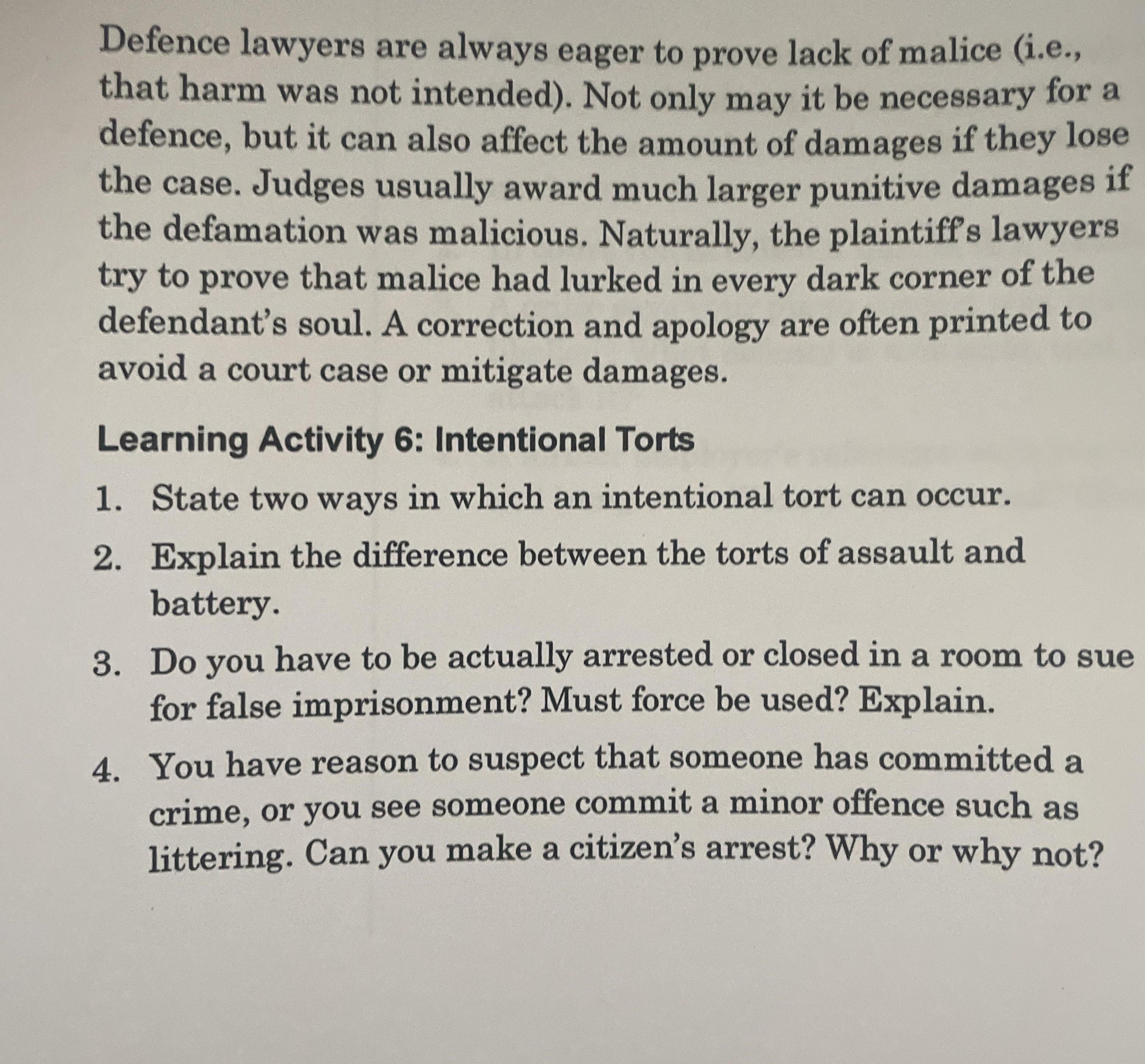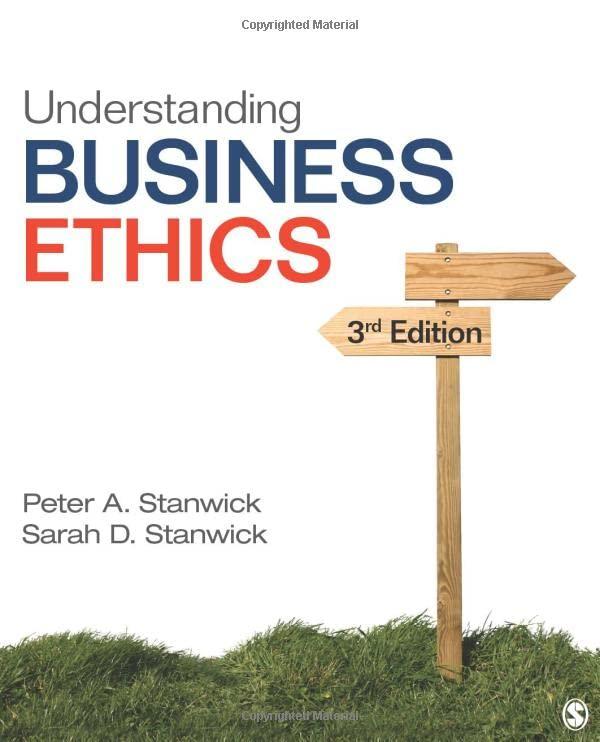Defence lawyers are always eager to prove lack of malice (i.e., that harm was not intended). Not only may it be necessary for a

Defence lawyers are always eager to prove lack of malice (i.e., that harm was not intended). Not only may it be necessary for a defence, but it can also affect the amount of damages if they lose the case. Judges usually award much larger punitive damages if the defamation was malicious. Naturally, the plaintiff's lawyers try to prove that malice had lurked in every dark corner of the defendant's soul. A correction and apology are often printed to avoid a court case or mitigate damages. Learning Activity 6: Intentional Torts 1. State two ways in which an intentional tort can occur. 2. Explain the difference between the torts of assault and battery. 3. Do you have to be actually arrested or closed in a room to sue for false imprisonment? Must force be used? Explain. 4. You have reason to suspect that someone has committed a crime, or you see someone commit a minor offence such as littering. Can you make a citizen's arrest? Why or why not?
Step by Step Solution
There are 3 Steps involved in it
Step: 1
1 An intentional tort can occur through deliberate actions or intentional conduct that results in ha...
See step-by-step solutions with expert insights and AI powered tools for academic success
Step: 2

Step: 3

Ace Your Homework with AI
Get the answers you need in no time with our AI-driven, step-by-step assistance
Get Started


